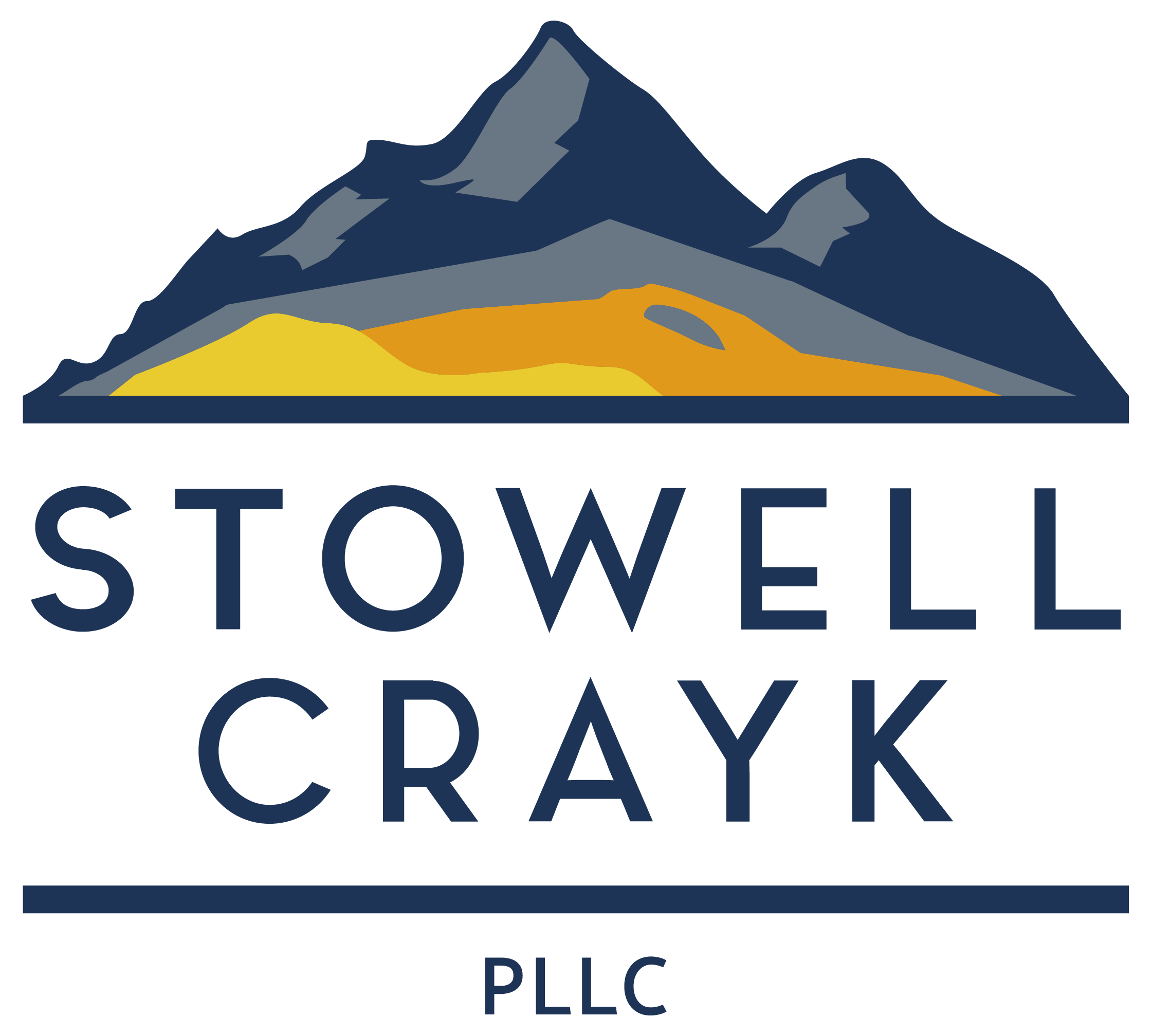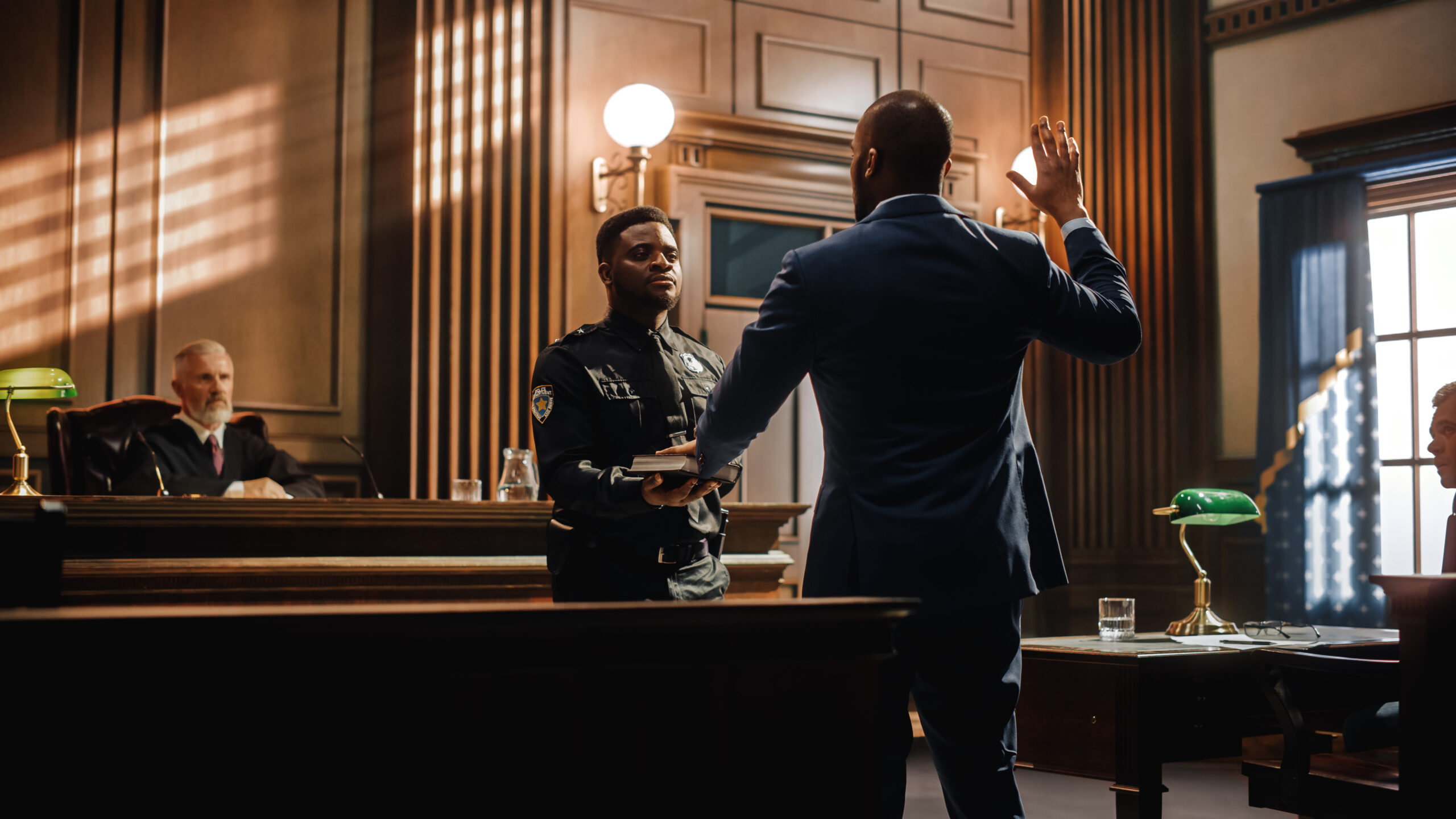Finding out the truth in a court of law is the main focus of justice. When individuals intentionally deceive the court through false testimony, it goes against the reasons of why we have a fair legal system. Proving perjury, however, is a complex task that requires careful examination of evidence, witness statements, and legal strategies. This is something that our criminal defense law firm knows how to do here at Stowell Crayk.
What is Perjury:
Perjury is intentionally providing false information or lying under oath during legal events. It is a serious offense that can result in severe consequences, including fines, imprisonment, and damage to one’s credibility. To prove perjury, it is very important to establish that the false statement was made knowingly, willfully, and with the intent to deceive the court.
1. Gather Comprehensive Evidence:
The foundation of proving perjury is in collecting thorough evidence that shows the difference between the false statement and the what the truth is. This evidence may include documents, audio recordings, video footage, or other supporting testimonies that contradict the false or perjurious statement. The different types of evidence and how varied they are, the stronger the case against the party at fault.
2. Document Inconsistencies:
Carefully analyze the statements made by the assumed perjurer and compare them with other statements they may have given at different times in different events. Document any inconsistencies, changes, or contradictions that arise. These can be powerful indicators of perjury. Any of the inconsistencies could relate to key details, timelines, or events, providing answers to reveal the deception.
3. Depose Witnesses Strategically:
Deposing witnesses is a crucial step in proving perjury. By carefully questioning witnesses, attorneys can uncover inconsistencies in their testimony and expose any conspiracy or coordination between those that are involved in the deception. Skillful and strategic statement techniques can extract information that strengthens and aids the case against the accused perjurer. These techniques are used by lawyers at a criminal defense law firm.
4. Establish Motive:
Understanding the motive behind the perjury is very important for building a persuasive case against them. Establishing why an individual would choose to lie under oath can provide insight into their intent and credibility. Motives may range from protecting personal interests and avoiding legal consequences to getting revenge or influencing the outcome of a case in their favor.
5. Utilize Expert Testimonies:
In some cases, expert testimonies can play a pivotal role in proving perjury. Forensic experts, handwriting analysts, or professionals with expertise in relevant fields can provide insights that support the credibility of the statements that were made under oath are false. Expert testimonies add additional knowledge of credibility to the evidence presented in court.
6. Leverage Technology:
Advancements in technology offer valuable tools for proving perjury. Audio and video forensics, for example, can be employed to analyze recordings of witness testimonies and identify signs of deception, such as changes in voice tone or body language. Digital evidence, when appropriately collected and analyzed, can provide irrefutable proof of false statements.
7. Establish a Pattern of Deception:
To strengthen the case against the alleged perjurer, it is important to establish a pattern of deception, meaning the evidence you provide consistently shows that they lied in court and under oath. This involves presenting evidence that demonstrates a consistent tendency to provide false information or manipulate the truth across various situations. A pattern of deception can significantly impact the court’s perception of the individual’s credibility in court.
8. Work with Legal Professionals:
Proving perjury is a complex legal undertaking that requires expertise in evidence collection, witness examination, and courtroom strategy, like the lawyers at Stowell Crayk, a criminal defense law firm. Collaborating with experienced attorneys and lawyers who specialize in perjury cases can be instrumental in navigating the legal process and presenting a compelling case before the court.
Challenges in Proving Perjury:
While the steps mentioned above provide a guide for proving perjury, it is essential to acknowledge the challenges associated with this. Perjury cases often involve a battle of credibility, where the accused perjurer’s defense may try to discredit evidence or witnesses. Additionally, determining someone’s intention can be difficult because they might say their actions were accidental rather than on purpose.
To address these challenges, legal professionals must be thorough in their preparation, anticipate potential counterarguments, and present a compelling case that leaves little room for doubt. Questioning the other party in court is a crucial moment. Skilled questioning can reveal mistakes and make the credibility of the other side less certain.
Furthermore, making sure the evidence follows legal rules is very important in perjury cases. Collecting and presenting evidence correctly is crucial to proving perjury. Mistakes in handling evidence could make the case weaker and risk the chances of proving perjury.
Conclusion:
The School of law at The University of Cornell states, “Generally, a witness in a trial commits perjury when they knowingly and intentionally lie about a material issue.” Proving perjury is a challenging but is essential in maintaining the integrity of the legal system. By meticulously gathering evidence, exposing inconsistencies, establishing motive, and leveraging technology, one can build a strong case against those who choose to deceive the court. Working with skilled legal professionals at a criminal defense law firm and employing strategic approaches to present evidence, can increase the likelihood of success in proving perjury.
Like any legal endeavor, it’s important to stay watchful, adaptable, and dedicated to finding the truth. Proving perjury can be tough, but it’s worth it to keep the legal system fair and just. By doing this, people help maintain justice and trust in legal processes. Successfully prosecuting perjury not only punishes the wrongdoer but also supports the values of honesty and openness that the legal system is built on.

